The Judiciary, which is the third estate of Nigeria’s democratic realm, is generally upheld as the last hope of the common man against the arbitrariness and excesses of power. However, this all-important arm of government has of recent been tainted with sordid tales of impropriety. One of which is the recent corruption index report released by the Independent Corrupt Practices Commission (ICPC), in which the judiciary came out tops, with a shocking N9.4 billion bribes in two years, Gabriel Atumeyi writes.
Corruption in the Judiciary
According to a Nigeria Corruption Index report by the ICPC, a pilot survey carried out by the Anti-Corruption Academy of Nigeria, which is the research and training arm of the Commission, revealed that the sum of N9,457,650,000 was corruptly demanded, offered and paid as bribe in Nigeria’s justice sector between 2018 and 2020.
According to the report, “bribe for judgment is one of the most egregious forms of grand corruption as it operates to undermine the very essence of judicial dispute resolution.”
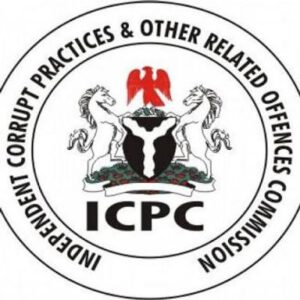
Findings unearthed by the report indicate that lawyers are said to be most responsible for offering bribes for favourable judgment — with 27.17 percent. Litigants followed closely with 21.96 percent, court staff (clerks, registrars, etc) 21.54 percent; judges 16.88 percent, and government MDAs 7.37 percent.
Cases of outright demand and offer of bribes were mostly linked to election matters.
Instructively, this would not be the first time the judiciary is being indicted concerning corruption, or ranked low on corruption index by a local or international agency. Even in the political sphere, the judiciary has always been the object of invectives from grumbling political factions who lose out on verdicts.
Such was the dire situation which compelled former President Obasanjo to pray, in 2016, for “the necessary wisdom and courage to clean the dirty stable of the judiciary.”
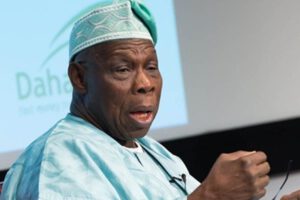
How the political class fuelled corruption in the judiciary
The Nigerian judiciary has always been under pressure brought about by events, circumstances and political developments, whether in military or democratic regimes as the powers that be often try to rein in the judiciary in order to have its way. These attempts have, in a large way, remained an existential threat to the independence of the judiciary.
In fact, some observers opine that such interference often opens the doors of corruption into the judiciary, as it is famously said that “he who pays the piper dictates the tune.”
While the National Judicial Council (NJC), has always been saddled with recruitment, promotion and discipline, the judicial bureaucracy, which also shares this blame, is also seen as a house of controversy as a result of its internal dynamics, as engendered by the prevailing pattern of national politics.
The period under review in the ICPC’s corruption index report also falls within the time a former Chief Justice of the Federation, Justice Walter Onnoghen, was removed from office after being tried by the Code of Conduct Tribunal, for allegedly failing to divulge cash lodgements in five foreign bank accounts, in contravention of rules governing declaration of assets by public officials.
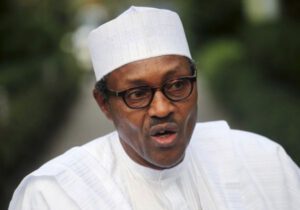
*President Buhari
Onnoghen’s removal was highly controversial as President Muhammadu Buhari, a northerner, made the move only weeks to the 2019 general elections. With the key role the Chief Justice plays in determining the composition and probable outcome of election petitions, it was believed that his replacement with a northerner from Bauchi State was somewhat premeditated.
To further complicate matters, the President did not seek the approval of two thirds of the Senate, or the recommendation of the NJC, as required by the constitution.
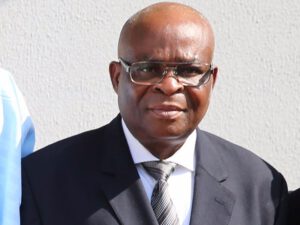
*Onnoghen
Although, it was seemingly glaring that Onnoghen breached the rules, leading to his ouster, loyalists of the Buhari administration defend the President’s unilateral decision to remove him, as well as an earlier 2016 raids on Judges’ homes, by insisting that the clampdown on the judiciary was because it was frustrating the efforts of the President to fulfil his election promise of 2015 to fight corruption to a standstill.
Many others also express distrust for the judiciary over the inconsistencies arising from their judgements. For one, the sector has over the years gained notoriety for being tools in the hand of the ruling elite who often hold the longer end of the judicial stick, as highest bidders.
They argue that while ex-governors such as Sen. Joshua Dariye of Plateau State and Jolly Nyame of Taraba were convicted of corruption offences and are serving time in prison, several other former governors with similar cases have been allowed to circumvent the system and are walking scot-free.
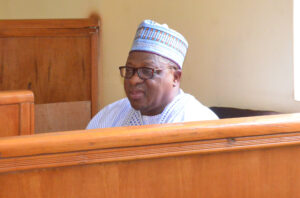
In fact, some observers posit that the close ties between the political class and the bench plays a huge role in compromising the judiciary as seen in the days of the PDP and the formative years of the fourth republic.
Perhaps, no where are these ties better flexed than at election tribunals which have grown into a multi-billon naira industry as a result of controversial election results that tumble out of the bench.
In deed, as one analyst put it, “We don’t have an executive arm of government that wants to fix the judiciary, neither do we have a legislative arm of government that wants to fix the sector, nor a judiciary that wants to fix the legislature and the executive arm of government.”
FG’s ineffective war on corruption
With just two years to the end of the present administration and President Buhari’s apparent flip flop on Executive Order 10 granting financial autonomy to states’ judiciary and legislature, it is still unclear the legacy or mark he wants to leave on the judiciary, especially as his anti-corruption crusade seems to have lost steam.
Speaking to 365Daily, a former Attorney General of Nasarawa State, Innocent Lagi, said it would be absolutely wrong to limit corruption in the judiciary to mere financial misappropriation.
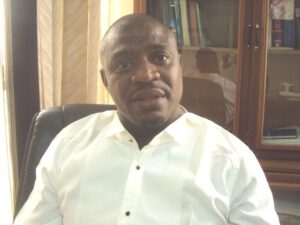
*Lagi
Lagi said: “The most corrupt institution in Nigeria is the judiciary, but I don’t want us to look at corruption from the point of view of money and finance as we always do. What happens in the situation that people abuse their powers. You can look up the definition of corruption, it is abuse of power.”
Continuing, he stated that the point, really, is whether the judiciary is performing its responsibility or is it abusing its powers. “You cannot imagine the judgement people get that is not in accordance to law. Is not in accordance to logic.”
Also speaking to 365Daily, Femi Falana (SAN), who disclosed that he was yet to peruse a copy of the ICPC report, contended that because some judges are corrupt is not enough to embark on a generalisation.
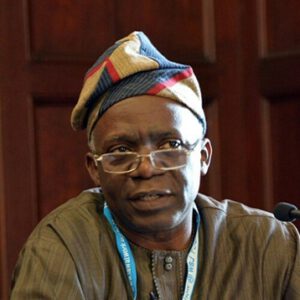
*Falana
“That is not to say there are no corrupt judges, but I can tell you that there is no other public institution that has such an inbuilt mechanism for dealing with erring members like the judiciary,” he added.
In a similar chat with 365Daily, Olumuyiwa Onlede, Executive Director, Citizens Awareness Against Corruption And Social Vices Initiative (CAACASVI), disclosed that the ICPC report is in no way a surprise to them in the anti-corruption vanguard, as the judiciary at all levels, according to him, has been compromised by other arms of government.
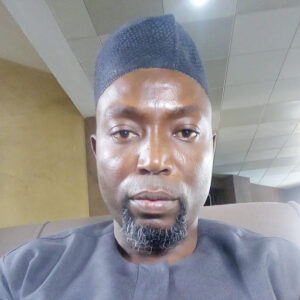
“Cases are predetermined in favour of the highest bidder, contradictory injunctions and confusing judgements are the order of the day in the judiciary,” he said.
The worry now, it would appear, centres around how to restore the judiciary to its lost glory, so that it can gain back the trust of the citizenry as the true conveyor of justice.